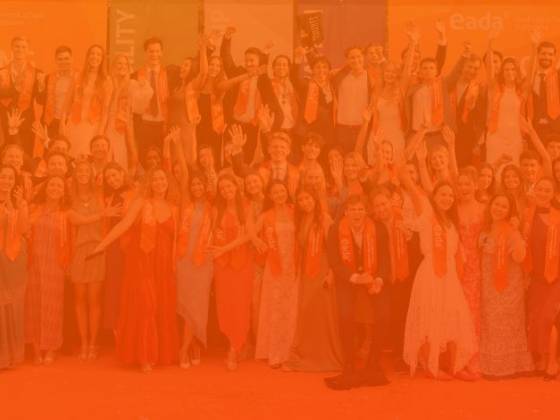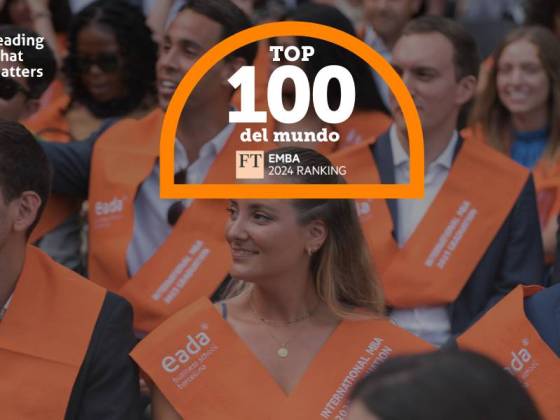EADA students design the sustainable room for Hilton
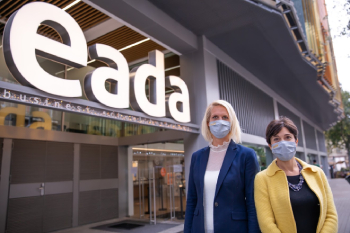 Alumni and current participants from EADA’s Master in Tourism & Hospitality Management and Master in Sustainable Business & Innovation acted as consultants for Hilton in the project ‘Sustainable Hotel Room’. Divided into mixed teams (from both master programmes), they presented creative and innovative ideas to Joachim Hartl, who is Area Manager Iberian Peninsula & General Manager at Hilton Diagonal Mar Barcelona. “We didn’t give frames, guidelines or much background in the project briefing because what we really wanted were out of the box ideas”, says Hartl. He adds: “We were interested in searching outside of common channels and audience to attract fresh and new thinking regarding a sustainable hotel room.”
Alumni and current participants from EADA’s Master in Tourism & Hospitality Management and Master in Sustainable Business & Innovation acted as consultants for Hilton in the project ‘Sustainable Hotel Room’. Divided into mixed teams (from both master programmes), they presented creative and innovative ideas to Joachim Hartl, who is Area Manager Iberian Peninsula & General Manager at Hilton Diagonal Mar Barcelona. “We didn’t give frames, guidelines or much background in the project briefing because what we really wanted were out of the box ideas”, says Hartl. He adds: “We were interested in searching outside of common channels and audience to attract fresh and new thinking regarding a sustainable hotel room.”
Sustainability has become an important decision-maker for consumers. Several studies confirm that brands with a clear social responsibility create more engagement than others without. This has extended to the hospitality industry and the sector has become more aware of the social and environmental impact of its actions. In addition, “sustainability is in Hilton’s DNA and part of our values because we are a people-based service, so we have the responsibility to make the world a better place to travel and live”, Hartl points out. As EADA’s Alumni and participants learned, Hilton works on local initiatives to develop young talent, promote diversity & inclusion and cooperates with social entities to support the most vulnerable collectives.”
According to Ulrike Jung, Master in Tourism & Hospitality Management Director, “acting as idea-generator for a big player like Hilton was an exceptional opportunity for Alumni and current participants to contribute to a more sustainable future in the sector and also a great step towards their future career positioning.” Jung emphasizes that “students from both master tracks have to develop a business plan throughout the year by including sustainability into the strategy and the operations of the business to create.”
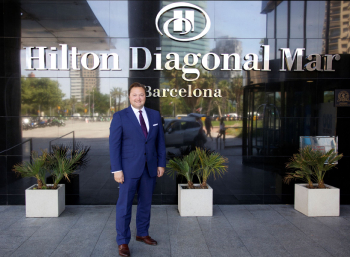 Federica Massa-Saluzzo, Master in Sustainable Business & Innovation Director, also highlights two key points: “On one hand, companies need leaders committed to sustainability and social impact. On the other, in the New Normal, it is even more important to work on sustainability policies in all aspects of business. Without a doubt, this is a competitive advantage.” For this reason, she adds, “it was a unique experience to learn about what it means for a big player like Hilton to face the sustainability challenge, how to develop a coherent strategy and finally, how to offer customized solutions in a short time.”
Federica Massa-Saluzzo, Master in Sustainable Business & Innovation Director, also highlights two key points: “On one hand, companies need leaders committed to sustainability and social impact. On the other, in the New Normal, it is even more important to work on sustainability policies in all aspects of business. Without a doubt, this is a competitive advantage.” For this reason, she adds, “it was a unique experience to learn about what it means for a big player like Hilton to face the sustainability challenge, how to develop a coherent strategy and finally, how to offer customized solutions in a short time.”
What should a sustainable room look like in the future?
EADA’s Alumni and participants tried to answer this during their presentations. These were some of the solutions they proposed:
- Materials: To use natural, ethical and locally sourced materials for furniture, fabrics, interior design of the room. To reduce plastic waste as much as possible: there are great sustainable alternatives like castor oil or recycled plastic that can be used instead.
- Reduction of energy and water consumption, as well as CO2 emissions and waste. Smart occupancy sensors, recycled concrete, greywater systems of aquifer thermal energy storage can play an important role.
- Customer experience: To rethink the guests’ experience in a more sustainable way with the help of bicycles, sustainable city guides, or green gift displays for a little souvenir to take home.
- Partnerships to complement a sustainable hotel. For instance, the well-known platforms like Sharethemeal by the United Nations World Food Program or Too Good To Go.
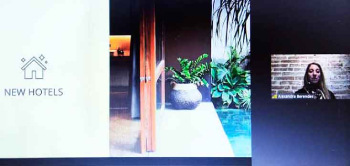 To Alexandra Berendes, a current participant of EADA’s Master in Sustainable Business & Innovation, there were two main challenges in this project: “Firstly, the short timeframe between kick-off and delivery which put us under quite a bit pressure. Secondly, finding ideas that had not already been implemented by Hilton or, at least, planned and embedded in their 2030 ambition for travel with purpose.” One of the things she liked the most was “working in interdisciplinary teams, with team members from different cultures and backgrounds, which made us stronger and more creative.”
To Alexandra Berendes, a current participant of EADA’s Master in Sustainable Business & Innovation, there were two main challenges in this project: “Firstly, the short timeframe between kick-off and delivery which put us under quite a bit pressure. Secondly, finding ideas that had not already been implemented by Hilton or, at least, planned and embedded in their 2030 ambition for travel with purpose.” One of the things she liked the most was “working in interdisciplinary teams, with team members from different cultures and backgrounds, which made us stronger and more creative.”
Josep Lionel, a current participant of EADA’s Master in Tourism & Hospitality Management, agrees that “acting as a consultant for Hilton was completely thrilling and challenging”. In his opinion, “it was nice to be able to develop our own ideas for a project with such a global scope and then get the chance to present them to the Hilton’s General Manager”. Lionel adds: “I learned a lot about sustainability and different ways to re-focus the strategy of any business in order to be aligned with the changing and uncertain times we are living right now.”

